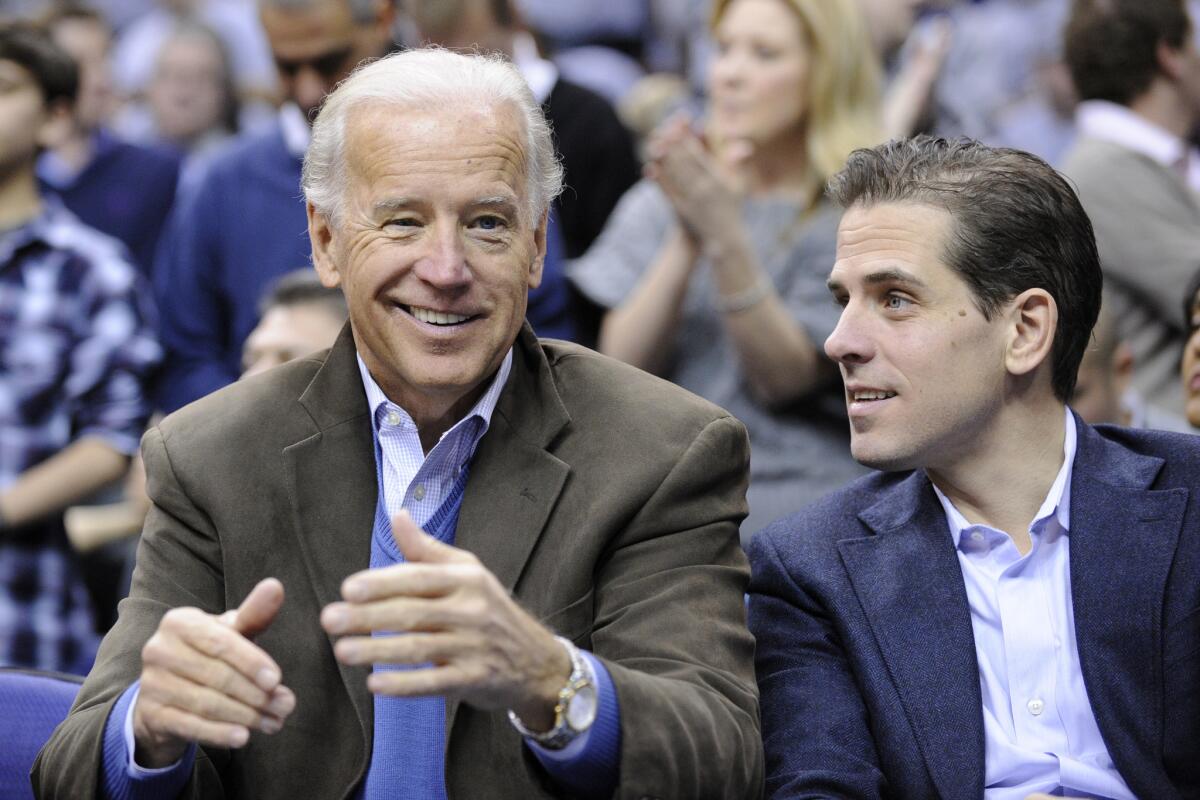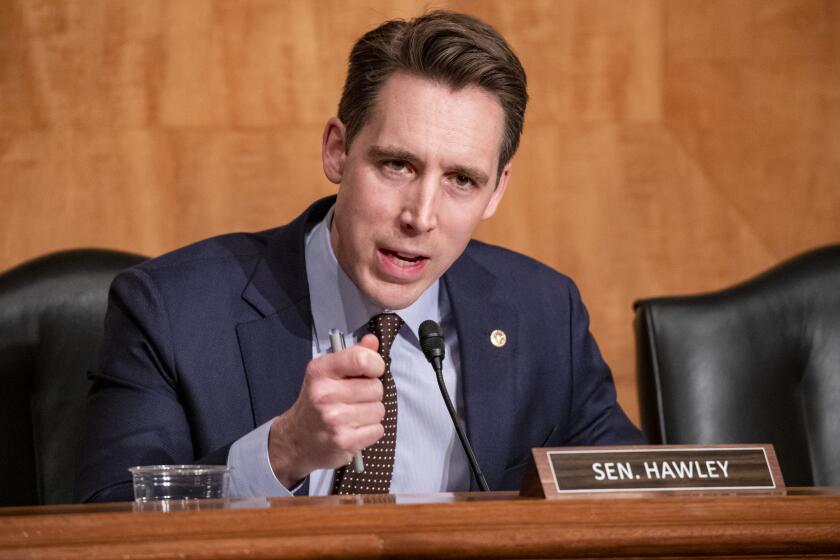Twitter CEO says it was wrong to block links to Hunter Biden story

- Share via
Twitter was wrong to block web links to an unverified political story, Chief Executive Jack Dorsey said Friday, as the company responded to criticism over its handling of the story that had prompted cries of censorship from the right.
“Straight blocking of URLs was wrong, and we updated our policy and enforcement to fix,” he tweeted, shortly before the company confirmed it had resumed allowing users to share the New York Post story about Hunter Biden, son of Democratic presidential nominee Joe Biden. “Our goal is to attempt to add context, and now we have capabilities to do that.”
Dorsey was weighing in after an executive at the social media company announced changes late Thursday to its policy on hacked content after an onslaught of criticism.
Twitter will no longer remove hacked material unless it’s directly shared by hackers or those working with them, the company’s head of legal, policy, trust and safety, Vijaya Gadde, said in a Twitter thread.
And instead of blocking links from being shared, the platform will label tweets to provide context, Gadde said.
“We want to address the concerns that there could be many unintended consequences to journalists, whistleblowers and others in ways that are contrary to Twitter’s purpose of serving the public conversation,” she said.
Twitter and Facebook had moved quickly this week to limit the spread of the story published by the conservative-leaning Post, which cited unverified emails believed to be from Biden’s son that were reportedly discovered by President Trump’s allies. The story has not been confirmed by other publications.
Twitter initially responded by banning users from sharing links to the article in tweets and direct messages because it violated company policy prohibiting hacked content. But it didn’t alert users about why they couldn’t share the link until hours later.
Social media platforms took far too long to start enforcing their rules against campaign-related content and major political figures.
Dorsey had first tweeted that it was “unacceptable” the company hadn’t provided more context for its action. A little over 24 hours later, Gadde announced that the company was making changes after receiving “significant feedback (from critical to supportive)” about how it enforced the policy.
The company initially said the link to the New York Post story would still be blocked under a policy prohibiting sharing of personal information.On Friday, the company resumed allowing users to share the story, with a spokesman saying the personal information contained in emails that were part of the New York Post report are now so widely distributed that it’s no longer a violation of its private information rule. The New York Times earlier reported Twitter’s decision.
Facebook said it was “reducing” the story’s distribution on its platform while waiting for third-party fact checkers to verify it, something it regularly does with material that’s not banned outright from its service, though it risks spreading lies or causing harm in other ways.
More to Read
Sign up for Essential California
The most important California stories and recommendations in your inbox every morning.
You may occasionally receive promotional content from the Los Angeles Times.














